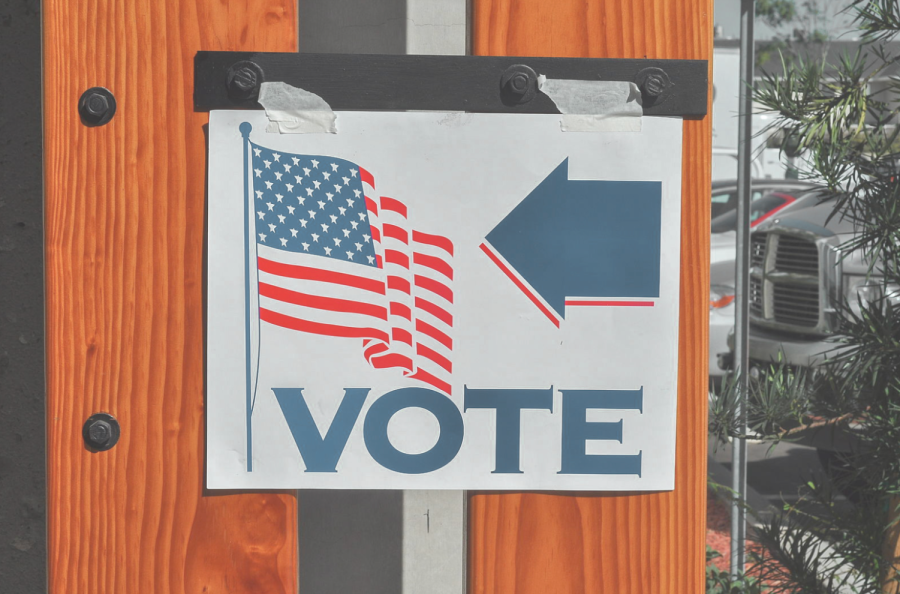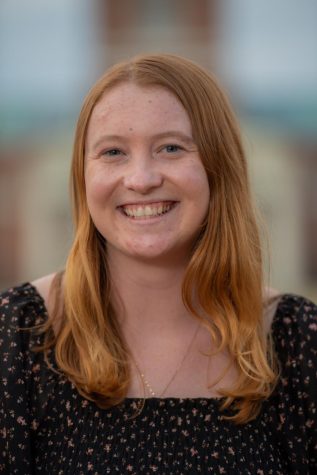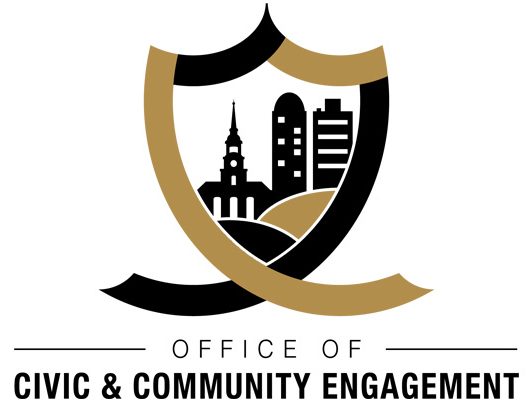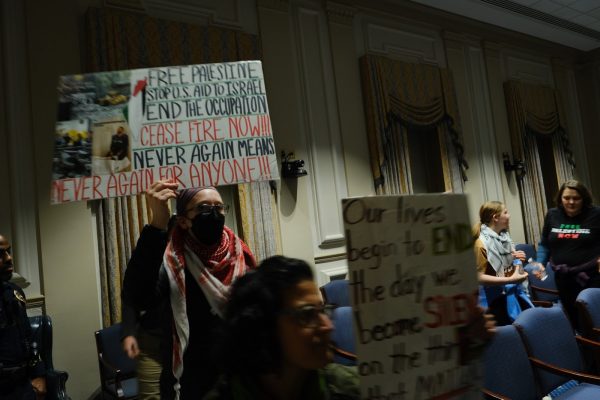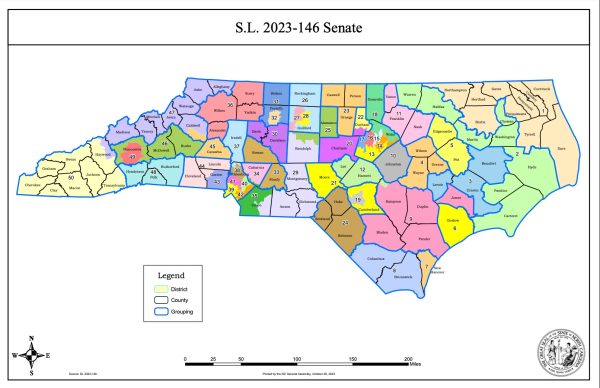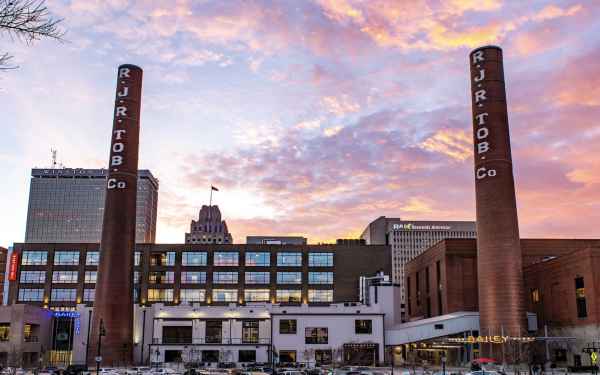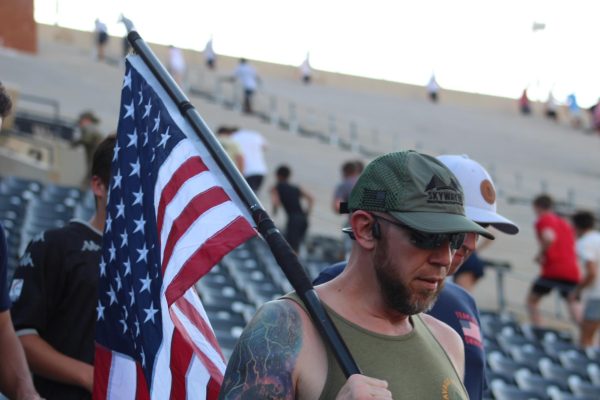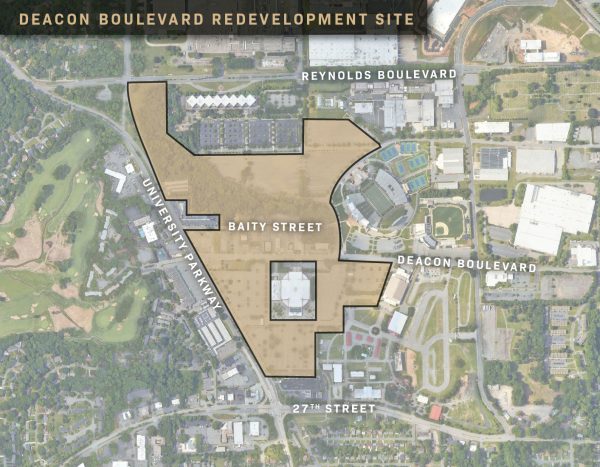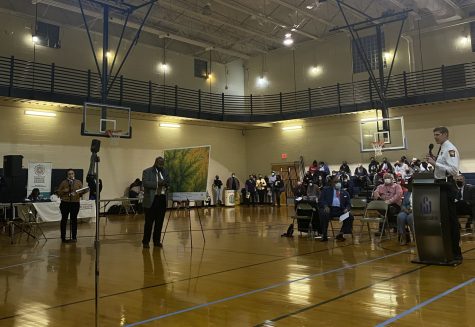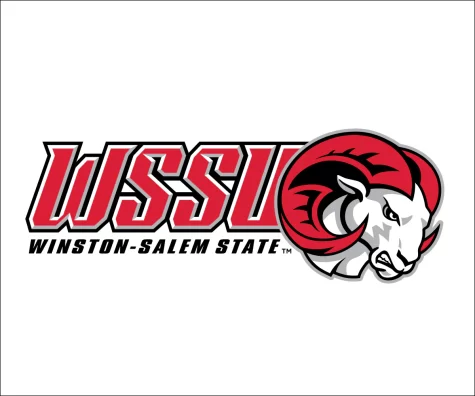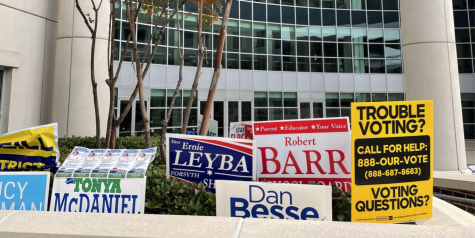Election anxieties drive increase in poll observers
Election integrity, intimidation fears have led to high recruitment rates
Poll observers are appointed by political parties to observe polling places.
November 8, 2022
As Election Day nears, Republicans in Forsyth County are heavily recruiting poll observers through social media, reflecting the nationwide movement among Republicans of paying special attention to election integrity. Democrats are also recruiting poll observers with an emphasis on preventing voter intimidation.
Dr. Katy Harriger is a professor of politics and international affairs at Wake Forest University whose expertise lies in American politics and civic engagement.
“I don’t think it’s the case that Republican voters are worried that their voters are going to be intimidated. I think that they are worried that people are going to vote in a corrupt manner,” Harriger said.
In the aftermath of the 2020 election, claims that many people cast illegal ballots were common, spurred on by former president Donald Trump and some of his allies. To date, no evidence has surfaced indicating any widespread election fraud.
Harriger said that Democratic poll workers may also be motivated by fear, albeit of a different sort.
“I think Democratic poll watchers are worried about their voters being intimidated. So they have different motivations, but in either case, their fear is that somehow the vote will be corrupted — either by stopping people from voting or for allowing people to vote when they shouldn’t be voting. It’s kind of two sides of the same coin.”
Poll observers are appointed by political parties and approved by the local board of elections to oversee election processes without interfering with the voting process. On the first day of early voting, Forsyth County Republicans had 10 at-large poll observers — meaning they can attend any polling site — and more than 25 observers assigned to specific sites, according to the Forsyth County Board of Elections. The Democratic Party had 10 poll observers for the first two days of early voting. Michelle Bobadilla, deputy director at the Forsyth County Board of Elections, said these numbers are comparable to other election years.
An average number of poll observers for the Republican Party was not from lack of recruitment. The party heavily recruited election day volunteers, particularly poll observers, through its website and social media posts.
Forsyth County GOP Chairman Ken Raymond has been impressed by the involvement of Republican poll observers this election season.
“We’re seeing a resurgence of volunteers for poll observers primarily because of concerns about voter integrity, cheating and especially concerns of things that happened in 2020 — concerns that were never addressed,” Raymond said. “They have questions. My people want to be there and watch and insist on transparency.”
In a Facebook post published Oct. 5, the Forsyth County GOP called for its followers to volunteer as polling assistants, addressing them as “patriots.” In an earlier post, the party said they needed more than 100 Republican volunteers to be poll observers. Attached to that post is a promotional image for a statewide volunteer organization that promotes election integrity efforts.
It’s not just Forsyth County Republicans that are rallying around election integrity this midterm season. The statewide GOP organization has an entire page on its website dedicated to “Election Integrity” where you can sign up to be a poll observer.
“Voters across North Carolina report election integrity as a top issue of concern,” the webpage reads.
According to its party leadership, the Democratic Party is most concerned with limiting voter intimidation and confusion rather than spotting irregularities at the polls.
“The big thing is making sure there’s no voter intimidation and making sure people have the patience to cast their ballot, as well as helping avoid any confusion,” Drew Skilton, Third Vice Chair of the Forsyth County Democratic Party, said.
In an email newsletter sent on Oct. 20, the first day of early voting, the county Democratic Party makes no mention of poll observers, yet does urge its members to volunteer as poll greeters to perform duties like “keep[ing] an eye out for Republican voter intimidation tactics outside the polling site.”
Matthew Barr is a professor of film at the University of North Carolina at Greensboro and is volunteering as a poll observer this election for the local Democratic Party.
“The reason I’m doing it is because it’s incredibly important to protect people’s right to vote,” Barr said. “The whole idea is to ensure people’s right to vote without being intimidated.”
After the May primary, the State Board of Elections sent out a survey about poll observer behavior to local election officials. Forty-three counties participated, and 17 of them reported poll observer misconduct. Tim Tsuji, the Director of the Board of Elections for Forsyth County, reported “no” to experiencing observer misconduct.
“There hasn’t been any reported instances where observers have harassed or intimidated anybody inside the voting enclosure, nor outside the voting enclosure,” Tsuji said.
Other counties in the state, however, reported problems.
According to the survey, election officials in nearby Davidson County reported that several poll observers demanded to stand behind machines to watch people vote and became argumentative after being told they couldn’t. Further west, in Henderson County, poll observers demanded to approach tabulators to verify totals and be in the room where USBs were being uploaded on election night to observe and verify no totals were being altered.
The state-wide election integrity movement
According to reporting in The Assembly magazine, representatives from battleground states Arizona, Florida, Georgia, Michigan, Pennsylvania, Virginia and Wisconsin all attended an election integrity conference hosted by Cleta Mitchell, a conservative lawyer who was a member of Trump’s legal team when he tried to overturn the 2020 election. Now these states have statewide organizations actively fighting for more secure elections.
Jim Womack is the GOP chair in Lee County and leads North Carolina Election Integrity Team (NCEIT), North Carolina’s statewide organization.
One of their goals is to have an active task force in each North Carolina county by January 2024. Right now, Forsyth County has a task force of 56 people.
“Forsyth County is one of our top counties in terms of organization,” Womack said. “I’ve been really impressed by the level of interest and effort there.”
One of the organization’s first meetings was held in Winston-Salem in February and roughly 100 people attended.
“I became a believer that this was not just something that was worthy, but it was also something that we’re gonna see a lot of interest in statewide,” Womack said.
North Carolina does not offer standardized training for poll observers, leaving training to political parties. The election integrity organization conducted some of these training sessions, which Womack said primarily attracts GOP poll observers. The organization hosted a session in Kernersville in April, according to the Forsyth GOP website.
Womack said he begins training sessions by asking the crowd how many believe the last election was stolen or manipulated, and most people raise their hands. He said he tries not to reinforce any myths that have unsubstantiated claims. Womack does not believe the 2020 election was stolen but does believe that absentee ballots were fraught with vulnerabilities. In the meetings he also outlines the rules poll observers must follow and how to report irregularities if they see any.
“I try to present factual information to all and properly frame the election challenges we have,” Womack said. For example, he believes that most improper behavior occurred through absentee ballots.
In 2021, the Associated Press reviewed every potential case of voter fraud in all six battleground states that former President Donald Trump disputed and found fewer than 475 cases — not nearly enough to change the outcome of the election.
Federal government committees released a joint statement in 2020 denouncing false claims about widespread voter fraud, stating that “the November 3rd election was the most secure in American history” and that “there is no evidence that any voting system deleted or lost votes, changed votes, or was in any way compromised.”
The North Carolina State Board of Elections prepared resources for this upcoming election to ensure that all volunteers follow the rules. State law prohibits poll observers from distributing campaign materials, speaking with voters, disrupting the voting process, taking photos or viewing ballots.
In early October, the state elections board issued Numbered Memo 2022-12 — the most comprehensive guide to date on maintaining order at polling sites. The guide outlines what is prohibited at polling sites as well as outlining proper procedures.
In addition to releasing this memo, the elections board partnered with the North Carolina Sheriffs’ Association and the North Carolina Association of Chiefs of Police to create the “Elections Reference Guide for North Carolina Law Enforcement,” a guide created to help law enforcement maintain peaceful and orderly elections as well as ensure no voters face intimidation.


